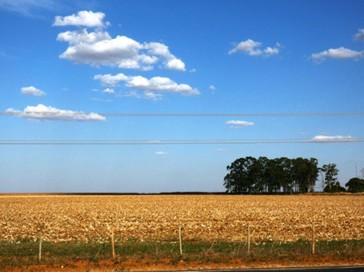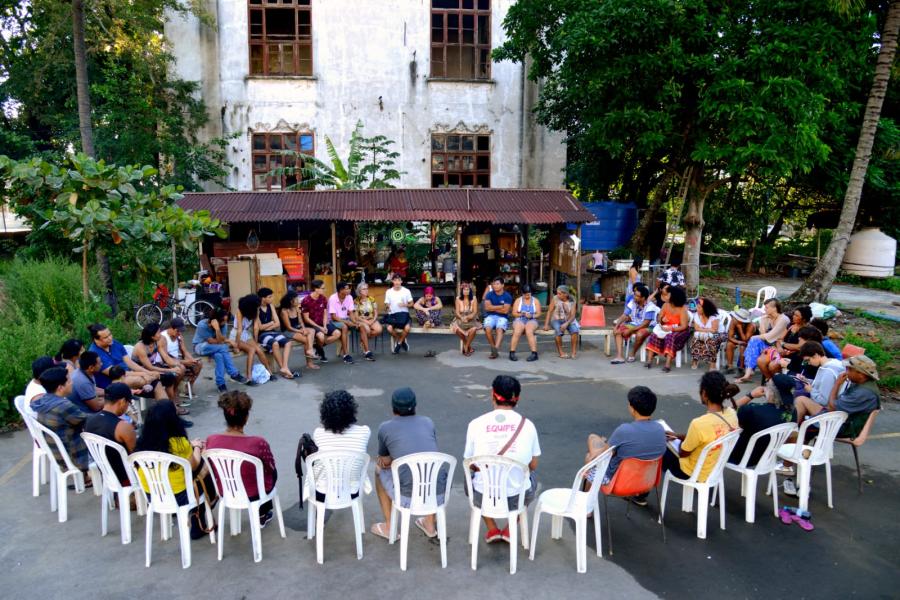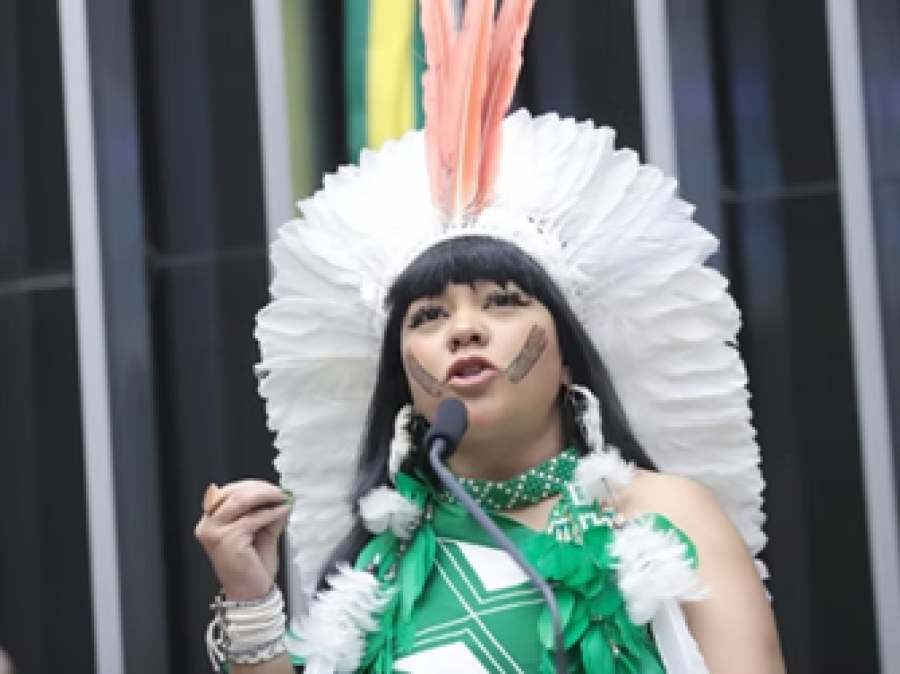
By Lygia Zamali Fernandes with Edson Krenak (Krenak, CS Staff)
As of August 19, 2025, Brazil's Administrative Council for Economic Defense ordered the suspension of the "Soy Moratorium" agreement. Signed in 2006, it is an agreement and a resource to protect the Amazon rainforest and prevent soy traders from buying products from deforested areas of the Amazon and Cerrado. Defended by environmentalists, Indigenous Peoples, and traditional communities, the moratorium is an important mechanism that demands accountability and punishment for companies that violate the agreement. For example, agricultural giant Cargill filed a lawsuit against ClientEarth for violating the moratorium rules.
Anyone familiar with the Xavante, Munduruku, or Quilombola Peoples knows that their territories are surrounded and profoundly impacted by aggressive soybean monoculture cultivation near their lands. Brazil is the world's largest soybean exporter, and the rapid growth of the sector, led by Cargill and Bunge, is driving the environmental destruction of vulnerable ecosystems and an accelerated violation of the rights of Indigenous Peoples, Quilombolas, and traditional communities in the Amazon rainforest and Cerrado.
The Brazilian Amazon is not just a battlefield: it is the heart of a global war for the future of our planet. On one side are the hegemonic forces of agribusiness, supported by international capital and a development model that prioritizes profit over people. On the other side are Indigenous Peoples and traditional communities, defending not only their homes but also a vision of citizenship rooted in the very life of the forest. This is a struggle between extraction and existence, between colonial paradigms and emancipatory futures.
This analysis goes beyond mere scientific observation to advocate for the strategic mobilization of these frontline communities, of which I am a part. I explore two powerful fronts in this struggle: the strategic victory of the Soy Moratorium and the revolutionary concept of Florestânia (forest citizenship)—a radical reimagining of citizenship that offers a true path out of our systemic crises.

The Soy Moratorium: A Fragile Shield in a Corporate War
In the early 2000s, agribusiness giants devastated the Amazon, transforming vast swaths of irreplaceable rainforest into soybean monocultures for global export. The 2006 Soy Moratorium emerged not as a gift from corporations, but as a hard-won concession forced by relentless pressure from grassroots movements and international outrage.
This agreement was a crucial first step, proving that corporate destruction can be contained. It showed the world that the soy industry was knowingly financing deforestation. However, we must be clear: the Moratorium has always been a fragile shield, not a solution. Its effectiveness is deliberately undermined by structural gaps, lax enforcement, and a thriving informal market. This episode exposes the fatal inability of market-based solutions and development agencies to address the root causes. We cannot negotiate with the very logic that creates the crisis; we must openly challenge it.
Florestania: The Radical Vision of Forest Citizenship
While the Moratorium operates within the system, "Florestania" seeks to transform it completely. Championed by visionary leader Ailton Krenak (Krenak) and rooted in what scholar Walter Mignolo calls "epistemic disobedience," Florestania is a direct rejection of western models of urban-centric citizenship. It is a political project born in the Amazon that asserts that true belonging is defined by a symbiotic relationship with the forest, not by a passport or a consumer identity.
Florestania is not just resistance; it is a project of liberation. It demands:
- Collective territorial control and an end to the invasion of agribusiness and mining. Land is not a commodity; it is a living kin.
- Alternative sociabilities honoring the right to coexist and combining timeless traditional customs with modern knowledge on one's own terms.
- Ancestral sustainability as a standard: Indigenous technologies and knowledge are not alternatives; they are the essential model for solving global environmental crises.
The Moratorium Under Attack
The precarious nature of market-led agreements is now in stark relief. The Soy Moratorium—a minimum protective measure—is actively under threat from agribusiness sectors and their political allies, who cynically call for "overregulation" while pushing for its abolition.
This is not a drill. It is a deliberate action to unleash a new wave of destruction under an even flimsier guise of sustainability. This moment sounds the alarm: toothless agreements with corporate powers are doomed to failure. The only lasting solutions are those rooted in the radical alternatives already practiced by the forest communities of Indigenous Peoples, Quilombolas, and traditional peoples.
The path forward is not to beg for weaker compromises, but to fight for stronger futures. The Amazon demands more than palliative measures. It demands a new paradigm where Florestania is the foundation, a paradigm where socio-ecological justice and a dignified existence are non-negotiable.
The time for neutral observation is over. The struggle of the Amazon communities is our struggle. We must support them, amplify their voices, support their movements, and reject the false solutions offered by their oppressors. The future of the forest—and, by extension, ours—depends on the courage to embrace this epistemic revolution.
--Lygia Zamali Fernandes is a researcher and member of a Floresta community.
All photos by Edson Krenak.



